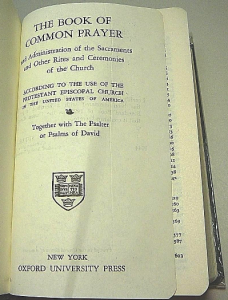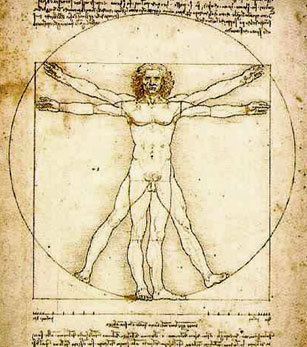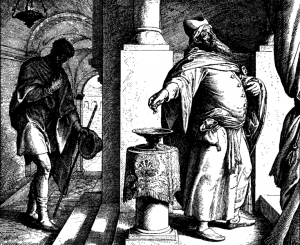====================
A homily offered by the Rev. Dr. C. Eric Funston on the Feast of the Epiphany, January 6, 2017, to the people of St. Paul’s Episcopal Church, Medina, Ohio, where Fr. Funston is rector and which inaugurated at the service its Year of Celebration marking the parish’s bicentennial.
(The lessons for the day are the Episcopal Church’s Daily Office Lectionary, Year 1: Psalms 96 & 100;
Isaiah 52:7-10; and St. Matthew 12:14-21.)
====================
 We are here tonight for two reasons. First, because this is the Feast of the Epiphany, one of the major feasts of the Christian Church and one we too often ignore, and second, because this is the inaugural event of our Year of Celebration during which we will mark the 200th anniversary of the founding of this parish.
We are here tonight for two reasons. First, because this is the Feast of the Epiphany, one of the major feasts of the Christian Church and one we too often ignore, and second, because this is the inaugural event of our Year of Celebration during which we will mark the 200th anniversary of the founding of this parish.
Epiphany is one of those weird Greek-based words that is so weakly translated into English that we misunderstand its power. Generally, the word is translated as “manifestation” and by it we refer to the manifestation of God in Christ Jesus. In the western church, this Feast of the Epiphany has come to focus on the visitation of the Magi – in some places it is even called “Three Kings Day” or just “Kings Day” – and it is followed by a season of Ordinary Time during which other “manifestations” of Christ are the focus of the weekly gospel lessons: his baptism by John with the descent of the Spirit and the voice of the Father, his first miracle of changing water to wine at the wedding in Cana, the calling of the Twelve, and so forth. In the eastern church, it is called the Theophany, usually translated as “manifestation of God,” and it is the principal feast of the Incarnation in the eastern tradition where the focus is primarily on either Jesus’ birth or his baptism.
These words epiphany or theophany, however, mean so much more than what is suggested by the translation “manifestation.” They are compound words made up of, in the first case, the preposition epi– meaning “on” or “onto,” and in the second case, theo meaning “god,” combined with phanos,
… a word familiar to [us] from the English ‘fantasy’ and ‘fantastic’ and all that is suggested by the ‘light shows’ with which modern electronics have made [us] familiar – the word epiphany speaks to [us] of showing forth, breaking through, letting light shine forth. * * * This is a time to look up and out, to shine forth, to witness to something quite literally spectacular and that, of course, is the presence in our midst of the Light of the World. [1]
So that is one reason we gather to celebrate this evening, to celebrate the fantastic, spectacular manifestation of God in Christ, the Epiphany of our Lord!
You may wonder why, if this is Three Kings Day, none of our lessons mentioned the visitation of the Magi: we heard neither Psalm 72, which speaks of the kings of Tarshish, of the isles, of Arabia, and of Saba paying tribute and offering gifts, nor Matthew’s story of the wise men from the East bearing myrrh, frankincense, and gold. Instead, we have Isaiah’s prophecy praising the beauty of messengers’ feet and another story from Matthew’s gospel in which Jesus heals a crowd of people but then “order[s] them not to make him known.”
The simplest answer, of course, is that those lessons about kings and wise men are reserved for the celebration of the Eucharist, while the lessons we have heard are part of the daily rotation of Scripture for use at the Daily Offices of Morning and Evening Prayer, the latter of which being the service we are offering tonight.
The more complicated, or perhaps deeper, answer is that tonight’s lessons remind us of the ministry of God’s People, a ministry of epiphany described in our Catechism as “represent[ing] Christ and his Church” and “bear[ing] witness to him wherever [we] may be.”[2] For that is what those beautiful footed messengers of Isaiah’s did with their proclamation of God’s reign and his comfort for a people in ruins, and it is what those people in Matthew’s gospel story did despite Jesus’ pleading with them not to do so; they manifested God, proclaimed God to those around them.
Which brings us to the second reason we gather this evening, to remember the founding of this parish and begin our year of celebration during which we will, in a number of ways, commemorate the first 200 years of the life of St. Paul’s Episcopal Church of Medina, Ohio, and look forward to our third century of proclaiming the Gospel of Jesus Christ in this community.
So let us look back for moment some 200 years ago . . . rather let’s look back 241 years ago for the story of our congregation really has its beginnings in the origins of our republic. Had the Revolution of 1776 not happened, we very likely would not be here today. You know the story, of course, how some American colonists came to the reluctant conclusion that their government, the King, his ministers, and the parliament in London, England, were acting in tyrannical ways and that they were unlikely to change their behavior; how those American colonists decided that the only remedy was to rebel, over throw that government’s dominion in the thirteen colonies, and establish a new sort of local government; and how, against the odds and nearly everyone’s expectations, they succeeded.
You know all of that, but did you know that 32 of the 56 men who signed the Declaration of Independence where members of the Church of England? That’s nearly 60% of the Founders who were Anglicans like you and me! And did you know that their chaplain, the chaplain of the Continental Congress which adopted that Declaration was the rector of a parish in Philadelphia, a man named William White?
Those men, those Anglicans, were reared in a religious tradition of public service, schooled in a theology of society, a peculiar worldview which teaches that the point of one’s life is not to locate oneself in some particular position of privilege, but rather to contribute to the transformation of the social order. Because of their Anglican ethos, they believed that the nation, whether it be the old Mother Country or the new nation they were conceiving, should reflect the merciful purposes of God: the comfort among the ruins of which Isaiah’s beautiful-footed messengers spoke, the healing of the sick which Matthew describes in this evening’s gospel, God’s everlasting mercy about which our Psalm sings today.
When they acted to sever their civil and political society from England, which they believed had fallen away from that tradition and that theology, they also severed their religious lives from the Church which had taught them that worldview. This was a serious matter for these men who were, many of them, vestrymen and leaders in their parishes. They belonged to a church which had preserved the ancient three-fold model of Holy Orders – bishops, priests, and deacons – which had preserved the traditional seven Sacraments – which believed with the ancient theologian Ignatius of Antioch in the centrality of the Eucharist and the unique role of the bishop in preserving the unity of the church. It was a serious matter because there were no Anglican bishops in North America, neither in what would become the United States nor in the still-loyal-to-Britain colonies of Canada.
After the Revolutionary War was ended and the new country was established, many of these men therefore turned their attention to the organization of Anglican Christianity in the new nation. In 1782, William White wrote a pamphlet entitled The Case of the Episcopal Churches in the United States Considered, in which he proposed a structure very similar to that which eventually came to be.
It is said that William White was the chief architect of our new kind of Anglican polity, a uniquely American, democratic way of being church. “Hierarchical rule [would be replaced] with egalitarian, democratic government,”[3] and bishops would be elected by majority vote of the laity and the clergy to be “servants of the Church and not its lords.”[4]
In 1784, the churches in Connecticut elected Samuel Seabury who sailed off for the United Kingdom and was eventually ordained a bishop by the Scottish Episcopal Church; he returned to Connecticut in August of 1785. In September 1785, the first General Convention of the Episcopal Church was held in Philadelphia, but it was a meeting only of the House of Deputies made up of lay and presbyteral representatives, Bishop Seabury not being in attendance; Mr. White presided.
In 1786, the churches in New York elected Samuel Provoost, who had fought in the Revolution and had succeeded William White as Chaplain of Congress, and the churches in Pennsylvania elected Mr. White. A year later, first Provoost and then White were ordained bishops at Lambeth Palace with the Archbishop of Canterbury presiding. In 1789, what is considered to be the third General Convention was held; it was the first in which a House of Bishops would meet. Bishop White presided, making him both the first President of the House of Deputies and the first Presiding Bishop. He later surrendered the chair to Bishop Seabury who served until his death about two-and-a-half years later; Seabury was succeeded by Provoost who also served for about two and a half years. He was then succeeded in 1795 by Bishop White, who thereby became not only the first Presiding Bishop but also the fourth. He served in that office for almost 41 years until his death in 1836!
During Presiding Bishop White’s tenure, some important things happened. Ohio was admitted to the Union in 1803 as the 17th State. Medina County was created in 1812.
In 1814, at the XIth General Convention of the Episcopal Church, the Rector of St. Peter’s Church in Plymouth, Connecticut, made an impassioned plea for the funding of mission activity and church planting in Ohio. His name was Roger Searle. Thereafter, with the blessing and support of the Bishop of New York, the Rt. Rev. John Henry Hobart, and of Presiding Bishop White, Searle left Connecticut and began planting churches in northeastern Ohio. In March of 1817, he met with a group of people living in the village of Weymouth who decided to organize themselves as the congregation of St. Paul’s Episcopal Church of Medina County; some of them may have been old enough to have been members of the Church of England before the Revolution. A month later, they built a small log cabin to serve as their church on Sundays and as a schoolhouse for the children of Weymouth during the week. That was the beginning of our parish!
On January 5, 1818, representatives of St. Paul’s, Medina would join with other Ohio congregations to adopt the constitution of the Episcopal Church and formally organized the Diocese of Ohio, the first diocese formed outside the borders of the thirteen original states. Although some hoped that Mr. Searle might be the first bishop of the new diocese, he supported the Rev. Philander Chase, who was elected as Ohio’s first bishop and consecrated to that office in 1819.
What they started here was a congregation and a diocese of the Episcopal Church, a manifestation (if you will) of that unique form of American Anglicanism championed by Bishop White, a way of being Christian that former Presiding Bishop Katharine Jefferts Schori has described as “holding together in tension polarities that some [might be] eager to resolve,” a sort of “both/and” thinking and living “that keeps our hearts pumping and mission thriving. [T]he kind of tension that drives some of us crazy – what’s more important? – justice or mercy? inclusion or orthodoxy? ministry grounded in bishops or in baptism?” Our American Anglican way of following Christ takes “the long view [that] says that if we insist on resolving the tension we’ll miss a gift of the Spirit, for truth is always larger than one end of the polarity. Tension is where the Spirit speaks. Truth has something to do with that ongoing work of the Spirit, and it can only breathe in living beings capable of change and growth.”[5]
We are indebted to Presiding Bishop White, to Bishop Hobart, to the Rev. Mr. Searle, and to the men and women who formed that first congregation of St. Paul’s Church in Weymouth 200 years ago. They bequeathed to us that sometimes tense, but living and breathing, changing and growing, Anglican sort of Christian faith which emphasizes reason in religion; which advocates an alliance of religion and science supporting scientific developments and believing that true philosophy can never hurt sound divinity; which seeks to make the church as inclusive as possible by providing toleration for dissent; and which teaches that constraining inquiry and the freedom of the believer is neither necessary nor salutary. It is a Christian witness which insists on a practical, public morality which comforts those whose lives are in ruins, heals those who are sick, feeds those who are hungry, shelters those who are homeless, and embraces the Gospel with the innocence of the children it educates. This is the legacy bequeathed to us by White and Searle and those Weymouth Episcopalians two centuries ago.
For 200 years this parish, St. Paul’s Episcopal Church of Medina, Ohio, has been an epiphany, shining forth in our peculiar American Anglican way, and witnessing to that fantastic, spectacular truth that present in our midst is the Light of the World.
As we celebrate the Epiphany of our Lord Jesus Christ tonight, we look forward to continuing that ministry, “represent[ing] Christ and his Church” and “bear[ing] witness to him” into the next century. May God continue to bless us abundantly as we do. Amen.
====================
Father Funston is the rector of St. Paul’s Episcopal Church, Medina, Ohio.
Notes:
[1] Byron, William J., SJ, Epiphany, The Word Proclaimed: A Homily for Every Sunday of the Year – Year A (Paulist Press: Mahwah, NJ, 2013).
[2] American BCP 1979, Page 855.
[3] Podmore, Colin, A Tale of Two Churches, International Journal for the Study of the Christian Church, Vol. 8:2, pp 124-54, 2008.
[4] Gundrum, James R., The General Convention: Understood Authority or Ecclesiastical Chaos, Arrington Lectures, University of the South, 1982.
[5] Closing Sermon, General Convention 2009.
 What does it mean to say “Jesus is Lord”? The question arises because of today’s dialog between Jesus and some of the Pharisees about the relative importance of the Commandments. Jesus responds to a lawyer’s question about the greatest commandment and then follows his response with a question about the lordship of the Messiah, the anticipated “Son of David.”
What does it mean to say “Jesus is Lord”? The question arises because of today’s dialog between Jesus and some of the Pharisees about the relative importance of the Commandments. Jesus responds to a lawyer’s question about the greatest commandment and then follows his response with a question about the lordship of the Messiah, the anticipated “Son of David.”  Lenten Journal, Day 36
Lenten Journal, Day 36 Today, by translation from Thursday, the 1st of November, we celebrate the Feast of All Saints.
Today, by translation from Thursday, the 1st of November, we celebrate the Feast of All Saints. Christology is one of those odd words of the Christian tradition that one doesn’t hear much in church but which one hears a lot in academic circles. Christology is defined as “the field of study within Christian theology which is primarily concerned with the ontology and person of Jesus as recorded in the canonical Gospels and the epistles of the New Testament.”
Christology is one of those odd words of the Christian tradition that one doesn’t hear much in church but which one hears a lot in academic circles. Christology is defined as “the field of study within Christian theology which is primarily concerned with the ontology and person of Jesus as recorded in the canonical Gospels and the epistles of the New Testament.” Our gradual this morning asks a question of God about human existence:
Our gradual this morning asks a question of God about human existence: In a few minutes, when this sermon comes to an end, we will all stand together as we do every week and recite the Nicene Creed in which we will say that, among other things, we believe that Jesus Christ
In a few minutes, when this sermon comes to an end, we will all stand together as we do every week and recite the Nicene Creed in which we will say that, among other things, we believe that Jesus Christ When I told friends, colleagues, and parishioners I was contemplating a total knee replacement, the singular piece of consistent advice was, “Do the exercises! Keep up with the therapy!” The surgeon who was to do the deed gave me a booklet full of pre-operative exercises to do at least twice each day; that seemed doable and it was – twice a day for six weeks before surgery.
When I told friends, colleagues, and parishioners I was contemplating a total knee replacement, the singular piece of consistent advice was, “Do the exercises! Keep up with the therapy!” The surgeon who was to do the deed gave me a booklet full of pre-operative exercises to do at least twice each day; that seemed doable and it was – twice a day for six weeks before surgery. May God be merciful to us and bless us, show us the light of his countenance and come to us. (Ps. 67:1) Amen.
May God be merciful to us and bless us, show us the light of his countenance and come to us. (Ps. 67:1) Amen. We are here tonight for two reasons. First, because this is the Feast of the Epiphany, one of the major feasts of the Christian Church and one we too often ignore, and second, because this is the inaugural event of our Year of Celebration during which we will mark the 200th anniversary of the founding of this parish.
We are here tonight for two reasons. First, because this is the Feast of the Epiphany, one of the major feasts of the Christian Church and one we too often ignore, and second, because this is the inaugural event of our Year of Celebration during which we will mark the 200th anniversary of the founding of this parish.  For the past couple of weeks in the Daily Office lectionary and today in the Sunday lectionary we are reading from the Wisdom of Yeshua ben Sira, some times called Sirach, sometimes called Ecclesiasticus, one of the books of the Apocrypha, those books recognized by the Roman and Eastern Orthodox churches as canonical, but rejected by Protestants. Anglicans steer a middle course and accept them for moral teaching, but not as the basis for religious doctrine. The text is a late example of what is called “wisdom literature,” instruction in ethics and proper social behavior for young men, especially those likely to take a role in governance.
For the past couple of weeks in the Daily Office lectionary and today in the Sunday lectionary we are reading from the Wisdom of Yeshua ben Sira, some times called Sirach, sometimes called Ecclesiasticus, one of the books of the Apocrypha, those books recognized by the Roman and Eastern Orthodox churches as canonical, but rejected by Protestants. Anglicans steer a middle course and accept them for moral teaching, but not as the basis for religious doctrine. The text is a late example of what is called “wisdom literature,” instruction in ethics and proper social behavior for young men, especially those likely to take a role in governance.

